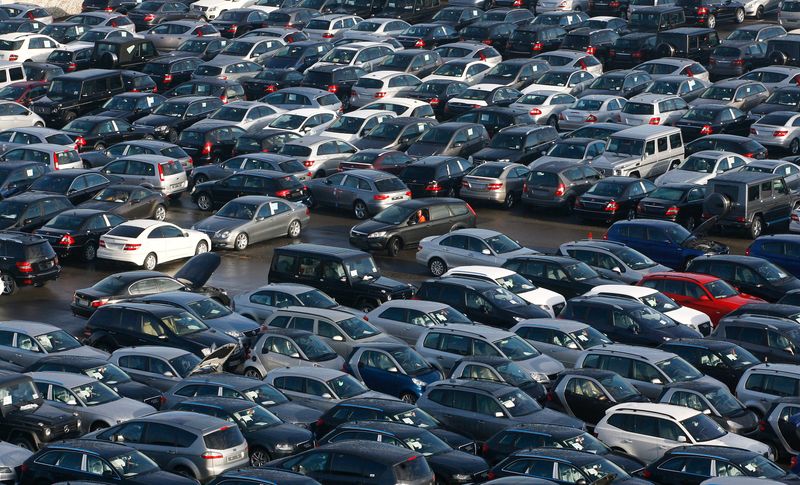BERLIN (Reuters) - Germany saw new car registrations drop by 40% in June, Tagesspiegel newspaper reported, quoting industry association VDIK, putting Europe's largest market on track for reaching a 30-year low.
In an article in Friday's paper, Tagesspiegel quoted the head of the International Carmakers' Association as saying that 220,000 new cars were registered in June, in calendar-adjusted terms a 40% fall over June 2019.
The numbers, showing the impact of the coronavirus crisis and the economic hit caused by months of lockdown, are further bad news for a sector that has been buffeted by the transition away from combustion engines and scandals over emissions.
For the full year, association head Reinhard Zirpel the number of new vehicles registered in 2020 was expected to fall 20% over the previous year to 2.8 million. The last time so few cars were sold was 1989 - the year of German reunification at the end of the Cold War.
But even that was an optimistic prognosis, Zirpel said.
"The cumulative minus up to the end of June is -35%," he said. "There will have to be a very strong recovery in the second half to reach -20% at the end."
Demand for electric cars had risen, however, with a 90% increase expected in the number of e-cars registered over the first half, for a total of 90,000. Almost half of those were pure electric vehicles, with hybrids constituting the majority.

Official data are due later on Friday.